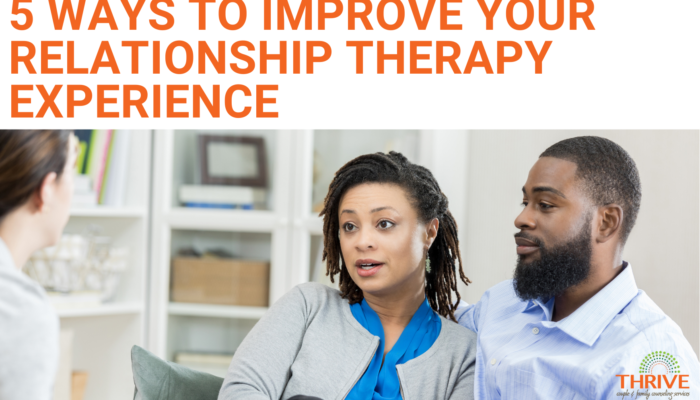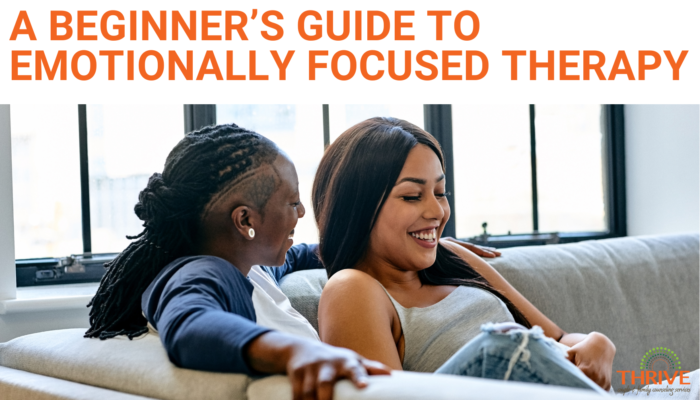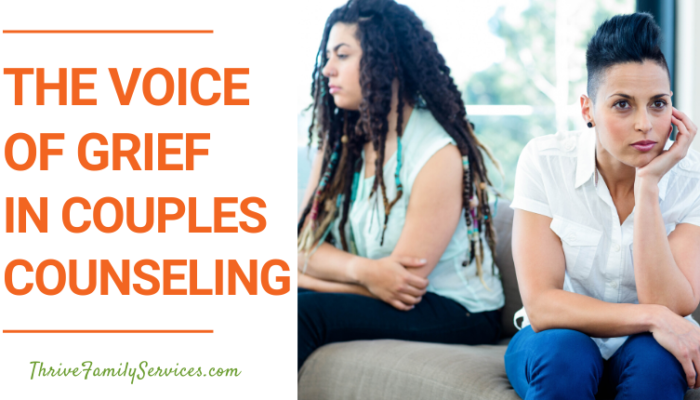Making the decision to go to therapy – especially relationship therapy – is something that people sometimes struggle with. Does my partner want what I want? Can we make it work? Will either of us end up feeling blamed? Will I or will my partner feel comfortable with the therapist? All of these worries are normal for someone contemplating couples counseling for the first time.
Relationship therapy in particular can be intimidating to consider because it involves an extra layer of vulnerability. Not only do you have to be vulnerable with a therapist, but you have to do so with your partner as well. That idea can be nerve-wracking, even if you’re in favor of going to therapy. It’s one thing to know that therapy can be a life-changing experience and it’s another entirely to feel ready to have that experience for yourself.
If you’ve decided to start relationship therapy with your partner, make sure to give yourselves a pat on the back.
It’s not easy to take time for yourself and your relationship in a culture where we prioritize being busy. Sometimes it seems like we don’t have a single spare second, so using the free time you do have to work on your relationship might be the last thing you feel like doing.
Give yourselves credit for actively making time to work on your relationship, because that is not a simple thing to do.
When you make the decision to go to relationship therapy, you typically do so because you want what’s best for you and your relationship. You and your partner are looking to shift something in your dynamic, whether that’s the way you communicate or the way you experience conflict.
There are things you can do to get the most out of relationship therapy, so you and your partner begin to feel closer and like you are on the same team again.
Here are 5 ways to improve your relationship therapy experience:
Make an effort
If you and your partner are taking the time for couples therapy, it’s important to commit to the process. Therapy isn’t going to be impactful or helpful for you if you don’t both make an effort both in session and outside of session.
When in the therapy room, it’s important to take part in the process and contribute what you’re thinking and feeling. If one partner isn’t participating fully, it is going to be a lot harder to move the needle toward any real changes.
At the same time, one way to make an effort is to share what might feel challenging or even scary for you about the therapy process itself. There could be very good reasons you are hesitant to share your feelings.
Maybe it hasn’t gone so well for you in this relationship when you do. Or perhaps you were never shown how to share your feelings in your family growing up, or even that feelings were discouraged.
Sharing any of these struggles out loud is you making a beautiful, wonderful effort.
Your therapist will see what a big deal it is for you to name this, and celebrate that progress with you.
Sometimes, both partners aren’t ready for counseling, and relationship therapy isn’t a good fit at the time. If one partner is ambivalent about therapy, or perhaps even the relationship, it might be more beneficial to start with individual sessions to help that person get clear on what it is they feel and what they want.
Therapy is most effective when everyone participating is there of their own volition, because they want to make a change.
Do work in between sessions
Therapy is, at most an hour or two a week. That leaves another 167 hours in the week where you’re not in the therapy room. The change that happens as a result of therapy is something that takes work. If nothing changes except going to therapy for an hour a week, it might take a lot longer for you to experience meaningful change.
On the other hand, if you and your partner make it a priority to continue the work outside of therapy, you’ll likely see more progress since you’re giving yourselves opportunities to put into practice what you’ve learned in counseling.
In Emotionally Focused Therapy (EFT), any homework we give is typically to first work on recognizing the cycle you get caught in and talking about it.
For example, there’s a therapy saying that goes, “Name it, claim it, tame it.”
While in EFT together, this might look like both of you being aware of your negative cycle. If it starts to happen, it helps to name it as gently as you can by saying “We must be getting caught again by that negative cycle we talked about in therapy last week. Let’s see if we can slow it down together.”
Then, work together to see if you can “tame it” by making sense together of what happened and reaching more softly to each other. Another way of “taming” the negative cycle is to own your part. “I yelled.” “I got defensive.” “I tried to solve the problem instead of just listening.” Then, make a reach more softly – “I’m sorry, I got scared, anxious, sad, or nervous.”
Embrace “and”
Lots of life can seem like it’s black and white – something is either good or bad. Our relationship is either healthy or unhealthy. While your first thought might be that something is all or nothing, most of life is rarely that cut and dry. There are shades of gray in between the extremes in your thinking, and therapy can help you learn to look out for those.
When you find yourself jumping to an extreme in your thoughts, try to look for the other possibilities. One way to practice this is to say “and” instead of “but”.
Instead of saying “I hope therapy can help, but our relationship has too many problems,” shift to “I hope therapy can help, and our relationship has a lot going on right now, so it might take some time.”
An incredible skill that therapy will teach you and your partner is to pause in the space between feeling and reacting.
Often, we’re moving too fast in our brains to slow down before we react. When we react without thinking, it can cause harm or miscommunications.
Taking the time to pause and consider your underlying emotions and your typical reaction. Then, see if you can pause to share what’s going on inside of you before you react, and also give yourself time to notice the “and” instead of “but”.
Take care of yourselves
Therapy shouldn’t be the only time you get to focus on yourself every week. Making time for self-care sounds either cute or salesy sometimes, but it’s a cliche for a reason. If you can’t function because you have neglected taking care of yourself, you aren’t doing yourself or your relationship any favors.
The work we do in relationship therapy isn’t easy. It involves digging deep into the patterns that you and your partner have developed and exploring your negative cycle so you can find where the disconnect is happening between you and your partner.
Therapy can bring up intense feelings and give you new things to think about that maybe you’ve been trying to avoid.
That’s why it’s extra important to take good care of yourself when going through couples therapy. If you’re not taking care of yourself, you won’t have the bandwidth to show up for your partner in session or out of session.
Notice the wins
Therapy is hard work. One way to help make the most of the therapy process is to actually take note of the process. Keep an eye out for when you use a new skill or react in a different way.
Celebrate out loud with your partner when you have a win! It’s tricky to build momentum in therapy sometimes, because it can feel like all you’re doing is talking and nothing is shifting. However, there’s often a lot more going on than you might notice at first.
If you’re used to your old patterns, it might take some time to see for yourself that you’ve made progress. When you do notice, though, make sure to make a big deal out of it! You’re doing the best you can, and it’s paying off. You’re showing up for yourself and your relationship, and that is always worth celebrating.
Do you think your relationship could benefit from relationship therapy? In our Centennial counseling office, we work with couples from all walks of life using Emotionally Focused Therapy, or EFT.
EFT helps couples get to the bottom of their negative cycle so they can feel more connected and gives you new ways to relate to one another that support your goals. Get in touch with our office today to get started working with one of our experienced couples counselors.




